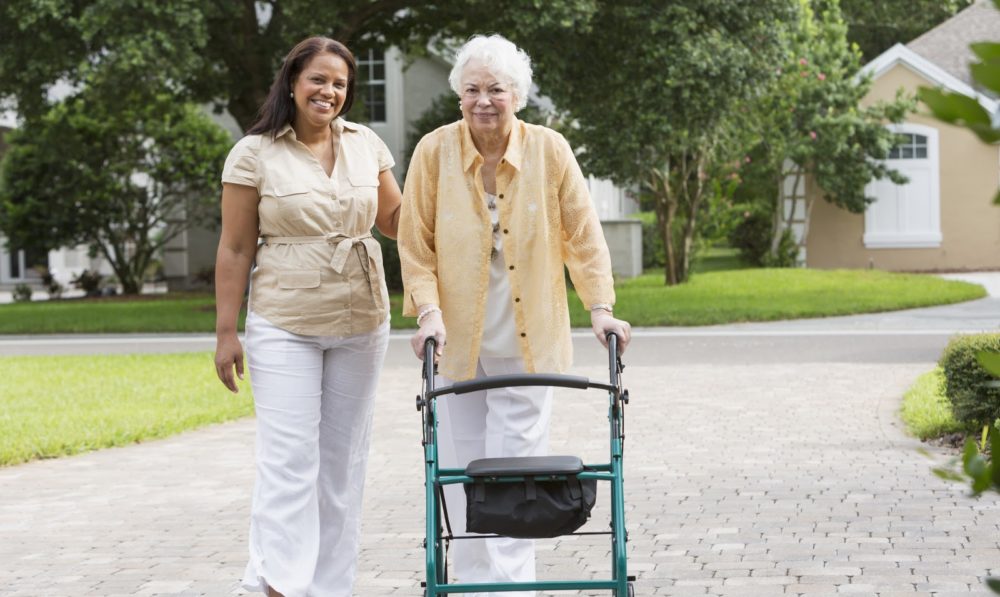Adults perform six primary activities of daily living, generally without assistance. If at some point they can no longer do them on their own, personal care services at a retirement community can make their lives, and their families’ lives, easier.
What are the activities of daily living?
The activities of daily living (ADLs) are officially designated as eating, bathing, dressing, toileting, transferring (moving from one place to another) and personal hygiene (care of skin, hair and teeth). Caregivers and social workers use these categories of activities to evaluate senior self-care and determine if personal care services at a retirement community would be beneficial. Other care options could include home care or skilled nursing care.
To help families make the best decision for their loved one, we have simplified the information on senior lifestyle options and care levels into a guide, “Navigating the Maze of Senior Living Options.” The guide is available in digital form online or at any Country Meadows location.
Compassion, privacy and dignity in personal care services
The ability to perform routine activities can decline either gradually or suddenly. Sometimes, seniors live independently quite well until they fall or have a stroke, leaving them unable to tend to their daily personal needs.
When these daily activities become a personal challenge, family members often become the caregivers. This inquiry from a senior woman is typical of concerns we hear from family members:
“My husband has Parkinson’s disease and needs assistance with activities of daily living. I have been his caregiver for the past two years and am concerned about my continuing ability to care for him. We are seeking a place where we can be together and have our individual needs met.”
That’s exactly the role that retirement communities with personal care services or assisted living care fulfill. They assist seniors in accomplishing their ADLs when they can no longer manage them on their own.
Personal care homes and assisted living retirement communities support seniors as needed with all six ADLs, plus laundry, housekeeping and medication management. Living accommodations typically include an apartment (such as at Country Meadows) or a large room, as well as three meals per day.
At first, seniors may be concerned that personal care services mean the end to their valued privacy or independence. But actually, privacy and dignity are the hallmarks of personal care provided by compassionate, professionally trained caregivers. Their goal is to support individuals in these personal activities and encourage their independence to enjoy meaningful daily pleasures.
Personal care and assisted living—are they the same?
Personal care and assisted living are defined and regulated differently from state to state. In Maryland, retirement homes can offer several levels of care, including personal care, and all are covered by the same assisted living licensure and regulations. This isn’t the case in Pennsylvania.
Many Pennsylvania retirement communities have personal care homes that provide most assisted living services but have decided not to pursue that status officially. This is because assisted living licensure can drive up administrative and staffing costs without increasing quality of care. In addition, Medicaid does not cover these higher costs with additional funding. See our blog post, “Assisted living or personal care? What’s the difference in Pennsylvania?”
At Country Meadows Retirement Communities, most of our locations offer personal care services, while a few offer assisted living care. If you visit any of our communities, you will find the same professional level of care in pleasant home-like surroundings.
If you’re in the process of choosing a retirement community, we would like to introduce you to the services that Country Meadows can provide for you or your loved one. Please contact us to learn more or schedule a visit to any of our 11 retirement communities in Pennsylvania or Maryland.



